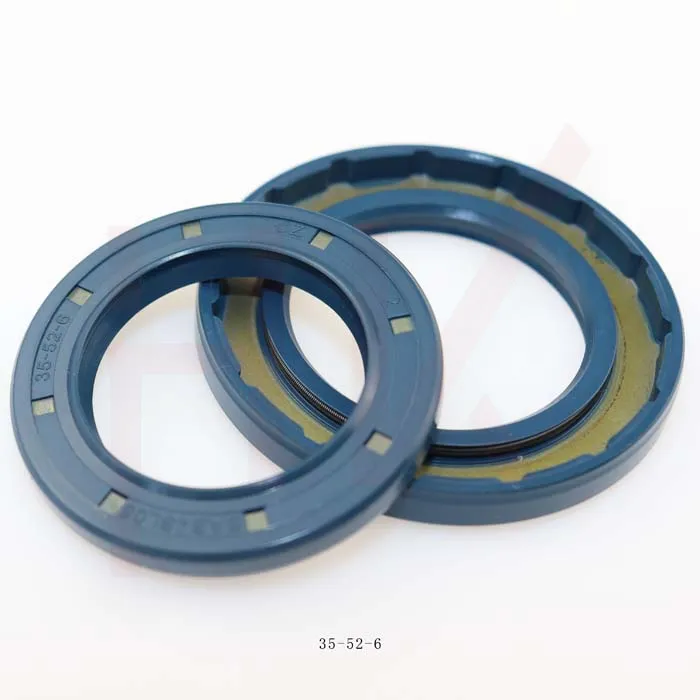Nov . 19, 2024 00:47 Back to list
Understanding the Role and Importance of Oil Seals in Mechanical Systems
The Function of Oil Seals Essential Components in Mechanical Systems
Oil seals, often known as grease seals or rotary shaft seals, play a crucial role in the functioning and longevity of various mechanical systems. From automobiles to industrial machinery, these seemingly simple components are essential for optimizing performance and preventing failures. Understanding the function of oil seals can illuminate their importance and guide the proper maintenance of machinery.
What is an Oil Seal?
An oil seal is a mechanical component designed to prevent the leakage of lubricants, such as oil and grease, from a machine or equipment. They serve as barriers that keep the lubricants contained while simultaneously protecting the internal parts from contaminants such as dust, dirt, and moisture. Oil seals are typically made from materials such as rubber, silicone, or thermoplastics, all selected for their durability and ability to withstand various operating conditions.
Primary Functions of Oil Seals
1. Leakage Prevention The foremost function of an oil seal is to prevent lubricant leakage. In machinery, lubricants reduce friction between moving parts, enhancing efficiency and prolonging service life. If these lubricants leak, it can lead to increased friction, overheating, and ultimately, mechanical failure. Oil seals ensure that the lubricants stay where they are needed, maintaining optimal performance and protecting critical components.
2. Contamination Prevention Alongside retaining lubricants, oil seals act as barriers against external contaminants. Dust, dirt, water, and other particles can significantly damage internal mechanisms if they enter a machine. Oil seals are strategically designed to provide a tight fit around rotating shafts and stationary components, preventing external materials from penetrating the system. This is particularly crucial in harsh operating environments, such as construction sites or manufacturing plants.
what is the function of oil seal

3. Support of Internal Pressure In many applications, internal pressure can build up due to temperature changes or the operation of machinery. Oil seals can help maintain this pressure balance, ensuring that the lubricants remain effective while safeguarding the integrity of the machinery. This function is vital in hydraulic systems and other applications where pressure stability is necessary for proper operation.
4. Reduction of Noise and Vibration Oil seals contribute to the overall noise and vibration management of mechanical systems. By ensuring that lubricants do not leak and that contaminants are kept at bay, oil seals help to keep machinery running smoothly. This reduction in friction and potential wear lowers noise levels and vibration, thereby improving the comfort of operation and extending the lifespan of the machinery.
5. Facilitating Maintenance Proper installation of oil seals can simplify maintenance tasks in mechanical systems. With effective seals in place, the frequency of lubricant replacements and inspections can be reduced. This, in turn, leads to less downtime and lower maintenance costs.
Conclusion
The humble oil seal is a vital component in the realm of mechanical engineering. Its primary functions of preventing leakage, blocking contaminants, supporting internal pressures, reducing noise and vibrations, and facilitating maintenance highlight its importance. Regular inspection and maintenance of oil seals are necessary to ensure that they continue to perform effectively, thereby safeguarding the machinery from potential failures and ensuring optimal operational efficiency.
In conclusion, whether in automotive applications or industrial machinery, the function of oil seals cannot be underestimated. Their role in preserving the integrity of lubricants and protecting machinery from external elements ultimately contributes to increased safety, efficiency, and productivity across various industries. Recognizing the significance of these components and adhering to proper maintenance practices will lead to reliable machinery performance and reduced operational costs in the long run.
-
TCN Oil Seal Metal Ring Reinforcement for Heavy Machinery
NewsJul.25,2025
-
Rotary Lip Seal Spring-Loaded Design for High-Speed Applications
NewsJul.25,2025
-
Hydraulic Cylinder Seals Polyurethane Material for High-Impact Jobs
NewsJul.25,2025
-
High Pressure Oil Seal Polyurethane Coating Wear Resistance
NewsJul.25,2025
-
Dust Proof Seal Double Lip Design for Construction Equipment
NewsJul.25,2025
-
Hub Seal Polyurethane Wear Resistance in Agricultural Vehicles
NewsJul.25,2025
-
The Trans-formative Journey of Wheel Hub Oil Seals
NewsJun.06,2025
Products categories
















